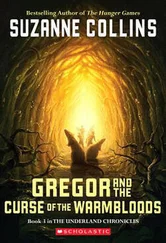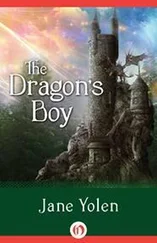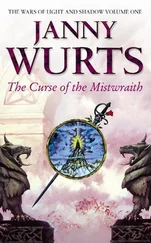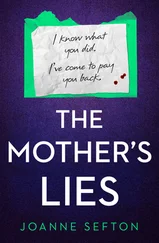There was only one other room, separated from the first by a ratty sheet, a closet-size sleeping space that was a disaster of wadded clothing and rumpled bedsheets. I spied a doll propped up against the far corner, its bright eyes glittering in the washed-out light filtering through the window behind us.
“Where have they gone?” I whispered.
“To look for her,” Dobrogeanu surmised, but it was as much a question as a statement.
“The rest of the building too?”
He shook his head and turned back. He tapped me on the shoulder and pointed to a lamp that sat upon the table. I understood at once. After I lit the lamp, he said, “We’ll have to search the building. Knock on every door, top to bottom. . . . Either they have fled into this foul weather—and there is only one reason I can think of—or they huddle in terror inside their hovels. Only one way to find out, Will!”
We left the flat. I looked for the baby immediately, but it was gone. The significance of this was not lost on Dobrogeanu. “ Someone is here, at least,” he said. He turned toward the fire escape and caught his breath. “Filthy coward!” he softly snarled.
Gravois, like the child in the hall, had vanished.
Dobrogeanu pushed open the fire escape door and stepped outside. He leaned over the rickety railing and squinted down to the courtyard below.
“Useless,” he muttered. “Completely useless!” He shook his head with frustration. “What to do,” he muttered. “What to do?”
From the stairway down the hall came a resounding crash. A moment later we heard the heavy thump-thump-thump of a large object tumbling down the wooden steps. Dobrogeanu yanked his gun from his pocket and hurried as fast as his old legs could carry him to the head of the stairs. I trailed a few steps behind, heartbeat thudding in my ears like a sympathetic echo of that unseen fall. Our light fought against the dark, failing to penetrate but a few feet in the deep gloom. Dobrogeanu laid a hand upon my shoulder.
“Stay here,” he whispered. He pulled the lamp from my hand and proceeded downward toward the third-floor landing. He turned the corner, gun thrust in front of him, his shadow hard-edged as if etched upon the boards, and then I lost sight of him. The glow of the lamp faded.
“Oh, no.” His disembodied voice floated up to me. “Oh, no .”
I followed the light down. Midway to the next landing I discovered Dobrogeanu sprawled on the stairs, his back pressed against the wall, and cradled in his arms the lifeless, broken body of Damien Gravois, his white shirtfront shining with fresh arterial blood, his sanguine face enshrouded by the same soiled swaddling clothes that had wrapped the baby in the hallway. His eyes had been pulled from their sockets; they dangled over his cheeks, still attached to the optic nerves.
“I found him,” Dobrogeanu said. It was an absurdly obvious observation.
He eased the body onto the stairs and pushed himself to his feet, using the wall behind him for support. I grabbed the lamp off the step.
“What do we do?” I whispered, though my voice seemed terribly loud.
“What we are trained to do,” he answered grimly, echoing Torrance. His gray eyes sparked with fire. He yelled down the stairs, “Chanler!” and then he took off, descending with the speed of a man half his age. I caught up to him on the first-floor landing, where he had paused, listening.
“Do you hear that?” he asked.
I shook my head. I heard nothing but the sound of our ragged breath and the far-off drip-drip of a water pipe. And then I did hear it, the soft, plaintive crying of an infant. It seemed to be coming from everywhere—and nowhere.
“He has taken the child,” Dobrogeanu whispered. He peered down the stairs leading to the cellar. He wet his lips nervously. He seemed torn. “Down there, do you think?”
We had only minutes to decide. If we chose wrong—if he had taken it instead to the first floor and we chose the other path—the child was doomed. My companion, with his years of experience, seemed paralyzed by indecision.
“We’ll have to split up,” I said. He did not reply. “Sir, are you listening?”
“Yes, yes,” he muttered. “Here,” he pressed Gravois’s pearl-handled pistol into my hand. He nodded toward the blackness beneath us. “You keep the lamp, Will. I should have enough light up here.”
And so I went down, to the very bottom, alone.
The steps narrowed. The suppurating walls closed in. A stench rose up to meet me, the smell of raw sewage. A pipe had burst and never been repaired, transforming the tenement cellar into a cesspool. The smell nearly overpowered me. Midway down I gagged; my throat burned and my stomach rolled in protest. I heard nothing at all now, and that emboldened me, for it must have meant he was not down there, but I knew I had to look to be sure.
The water at the bottom was more than two feet deep and was covered in a greenish-yellow slime. Broken boards—the remnants of storage barrels—floated in the stagnant stinking pool. I saw the body of an enormous rat floating near my feet, the skin of its bloated corpse peeling off as it rotted; something had already devoured its eyes. I could see its yellow fangs glimmering in its mouth, which was yawning open in a silent howl.
I stopped on the last step, upon the banks of this foul underground pond, holding my light high, but it could not drive back all the darkness. The far end remained swallowed in stygian shadow. What was that bobbing just on the edge of the light? A piece of broken wood? An old bottle? The scum-covered surface undulated; the boards seesawed in the reeking black water. I heard nothing except the steady drip-drip of the leaking pipe.
I turned to leave—clearly nothing was down here—and a voice inside my head spoke up. It was the voice of my master:
Pay attention, Will Henry! What do you notice about the water?
I hesitated. I had to get out. I could not breathe in that nasty hole. Chanler was not there. The baby was not there. Dobrogeanu needed me.
And still the voice persisted: The water, Will Henry, the water.
I started back up the stairs. Should I call out for Dobrogeanu? Or had he already met the same fate as Gravois, and now it was my turn?
Will Henry, the water . . .
Shut up about the water! I shouted silently at the voice. I have to find Dr. Dobrogeanu. . . .
I froze about six feet above the pool. I turned back. The rat’s empty eye socket stared back at me.
“The water is moving ,” I said to the dead rat. “Why would it be moving?”
The voice in my head fell silent. Finally I was using that indispensable appendage between my ears.
Hot tears stung my eyes, partly from the smell, but mostly from understanding. I knew why the water moved. And I knew why I’d heard no crying.
The lamp created a perfect sphere of light around me. I waded into the sewage, my feet slipping on the slimy brick bottom. I could feel the filthy water seep into my boots. The dead rat nudged my knee with its long nose as I passed.
It was not a bottle or an old board I had seen floating in the excremental soup. When I reached for it, my foot slipped and I fell with a soft cry, catching myself by dropping the gun and pushing against the bottom with my right hand. That allowed me to keep the lamp aloft in my left. Its light played along the upturned face that floated a foot away; that was all I could see—the baby’s face. The rest was hidden beneath the mustard yellow scum. I pushed myself up. Now I kneeled before it—coughing, gagging, sobbing. I didn’t care anymore if the beast heard me. All I could see was that face, smeared in jellylike feces, the blank eyes sightlessly staring into the abyss above.
Читать дальше












